Support strong Canadian climate journalism for 2025
In the conference room of a handsome hotel in Guatemala City, a conversation about Canada brings five grown women to tears.
Canada is a country they associate with tear gas, rubber bullets, midnight raids on rural communities, decimated Indigenous lands, and the incarceration of friends and family.
Dabbing wet eyelashes with hotel napkins, they ask a group of international delegates for help obtaining justice. Pink roses lie flat on the table — a token to thank the women, all human rights activists, for their courage and candor.
“The Government of Canada has not taken responsibility,” says Amalia Lemus, speaking in Spanish to a roomful of two dozen North American, Guatemalan and Middle Eastern philanthropists, activists and NGO workers. They came at the tail end of the rainy season in late October to hear from women about challenges to peace, land and water rights in Guatemala.
“Internationally, it’s like we don’t exist," says Lemus. "We are all at risk and our water is at risk... the violation of human rights is enormous.”
To many Guatemalans, she explains, Canada is a country synonymous with mining — a lucrative industry in Guatemala, which is rich in gold, silver, zinc and nickel. At last count, Canadian mining companies had a major stake in the Central American country's extraction, with five corporations holding more than $289 million in assets.
Two of the Canadian companies, Tahoe Resources and Hudbay Minerals, are now subject to court cases in Canada for alleged breaches of tort law. The lawsuits stem from extreme acts of violence allegedly committed by mine security personnel against locals opposed to the projects. Both companies deny the allegations against them and legal proceedings against Hudbay started last week.
In Guatemala, mining companies and their subsidiaries flourish in a “state that was designed for corruption and impunity,” explains Claudia Samayoa, founder of the Unit for the Protection of Human Rights Defenders in Guatemala. The government — led by two successive presidents charged with corruption — has an “almost non-existent” will to enforce environmental and human rights law, adds Ursula Roldán Andrade, a co-ordinator for the migrations department at Guatemala’s Institute for Research and Political Management.
But Canadian mining companies could soon face new federal scrutiny for their activities, both in Guatemala and around the world. The Trudeau government is poised this week to deliver on a 2015 campaign promise to create a new human rights watchdog with powers to investigate Canadian corporations involved in extraction overseas.
Liberal MP John McKay — who has long championed the office's creation — said he expects an announcement by the end of the week. A Global Affairs Canada spokesperson confirmed that news on the human rights ombudsperson is coming "shortly," but would not provide a date.
“Will (the ombudsperson) fulfill all my dreams and aspirations and hopes and fantasies? No,” McKay told National Observer in an interview. “But certainly it’s one more step along a path of accountability, and I think it’s probably one of the most significant steps that could be taken.”
International Trade Minister François-Philippe Champagne's office did not respond to requests for comment on this piece.
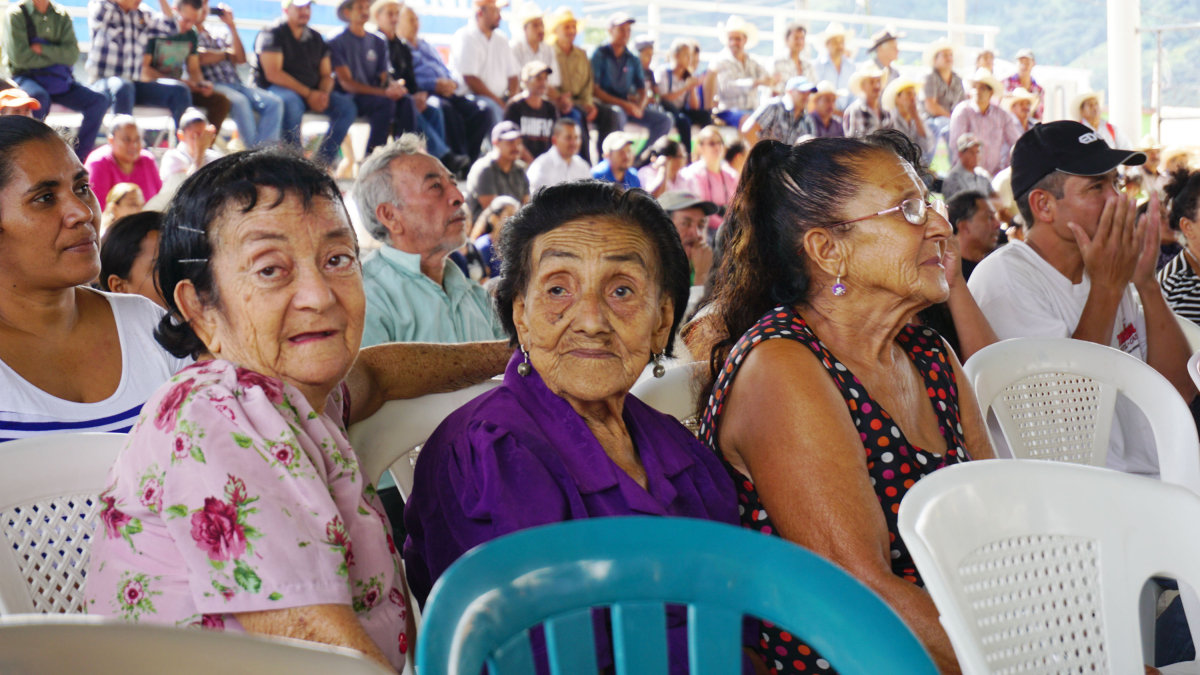
The victim count piles up
According to a 2016 report by York University’s Osgoode Law School, 28 Canadian mining companies have been tied to at least 44 deaths, 403 injuries and 709 cases of “criminalization” across Latin America between 2000 and 2015. About a quarter of this violence took place in Guatemala, but the report noted that Canada’s federal government and industry do not typically disclose such incidents.
Local human rights defenders say that if every mining project proposed in Guatemala goes forward, there will be one mine for every 100 kilometres in a country of just 108,000 square kilometres — roughly the same size as the State of Ohio. It’s unlikely, they admit, but even a few new mines could do serious damage to the land and water, they argue, when combined with the impacts of neighbouring hydroelectric, oil and gas, and industrial African palm oil projects.
Natural Resources Canada has confirmed that it does not keep statistics on how many project proposals, licenses and land concessions in Guatemala are tied to Canadian companies.
But according to Samayoa of the Unit for the Protection of Human Rights Defenders in Guatemala, Canada is a major player.
“Canada — with all respect when it comes to the foreign mission — when the majority of our country says no to mining, what can I say? Canada lives for mining,” she said during a meeting of women human rights defenders in Guatemala City on Oct. 25.
“The problem is that we (in Guatemala) have a mafia state. It’s not a regulated state, and promoting human rights becomes a risk of death.”
Asked about Canada's reputation in Guatemala, a Global Affairs Canada spokeswoman Brianne Maxwell said "promotion and protection of human rights is a key priority" for the federal government. She noted that Guatemala's high rates of impunity and corruption threaten citizen security and contribute to human rights violations, but did not acknowledge that any such violations are associated with Canadian mining operations.
Canada has poured more than $18 million into anti-impunity efforts in the country since 2009, she added, and recently announced more than $7 million in funding to help enhance regional stability and address security challenges in Central America.
"We want Canadian companies operating in Guatemala to be part of the solution, by respecting human rights and all applicable laws, and by conducting their activities in a socially and environmentally responsible manner and by reflecting Canadian values," said Maxwell in an emailed statement. "We also expect them to adhere to internationally recognized corporate social responsibility principles and standards in the countries in which they operate."
To make sure Canadian companies comply however, a human rights ombudsperson for the extractive sector is desperately needed, said Jean Symes, who sits on the steering committee of the Canadian Network on Corporate Accountability (CNCA). The network, which includes groups like MiningWatch Canada, Amnesty International Canada and Above Ground, has been calling for such an office for a decade.
In order to be effective, it says the ombudsperson must be independent of government; have the resources and authority to conduct thorough investigations; must make public recommendations for remedy and harm prevention; and be able to monitor the implementation of those recommendations. He or she must also have the discretionary ability to summon testimony and documents from mining companies, said Symes.
“Every day that goes by, civil society organizations in Canada get reports from Latin America, from Africa, from Asia, from middle-Europe countries, that Canadian mining companies are being accused of very severe violations,” she explained.
“There were a couple of union organizers who were killed recently in Mexico and this is not an unusual thing. It is not necessary for a situation to get to this degree. In all of these cases, there are problems and have been problems for a very long time.”
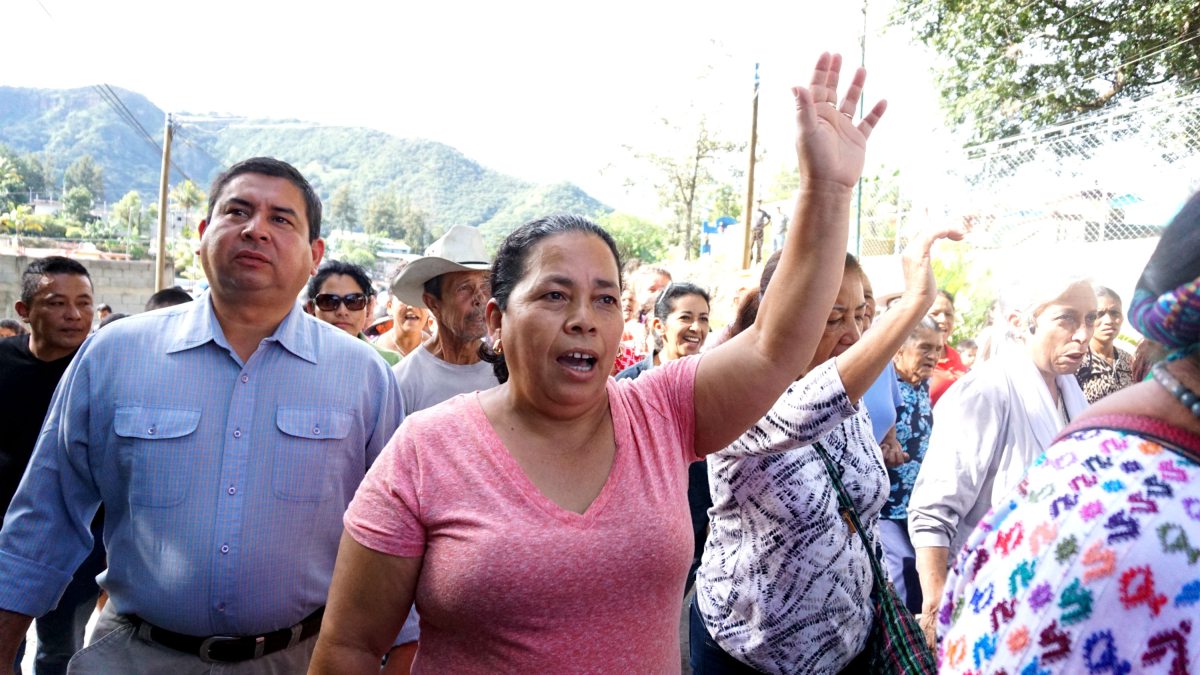
The United Nations cracks down
Allegations of human rights abuses at Canadian mines abroad have become a black eye for Canada internationally, attracting the attention of at least five United Nations organizations over the last few years.
In June, the UN Working Group on Business and Human Rights scolded Canadian corporations and governments for having “patchy practices” on Indigenous consultation, environmental pollution and preventing violence against human rights defenders, both in Canada and abroad. It too, recommended the creation of a human rights ombudsperson to oversee the extractive sector, after a 10-day visit with Indigenous, government, industry and union leaders in Ontario, B.C. and Alberta.
“There’s a lot of talk, which is a good starting point, but we expect concrete action which can change the dynamic on the ground,” said Surya Deva, vice-chairman of the working group, during a press conference in Ottawa in the spring. “Human rights do not mean much in practice if victims are not able to avail effective remedies for violations of human rights.”
While praising Canada’s endorsement of key international policies protecting human rights and Indigenous people on paper, Deva identified what he described as a “large gap” between “walking and talking" on those documents. The working group will return to Canada next year to measure the progress of corporations and governments.
As it stands, two mechanisms exist in Canada for conflict resolution and remediation within Canada’s mining industry — the National Contact Point (NCP) and Extractive Sector Corporate Social Responsibility Counsellor. Both rely on the voluntary participation of companies, however, and over the years have been heavily criticized for overlapping roles and alleged ineffectiveness.
McKay, the Liberal MP whose bills to promote environmental best practices and protect international human rights standards at Canadian mines abroad have fallen flat in the House of Commons twice, said these offices were ineffective. Broadly speaking, however, he said Canadian mining companies “actually operate quite responsibly.”
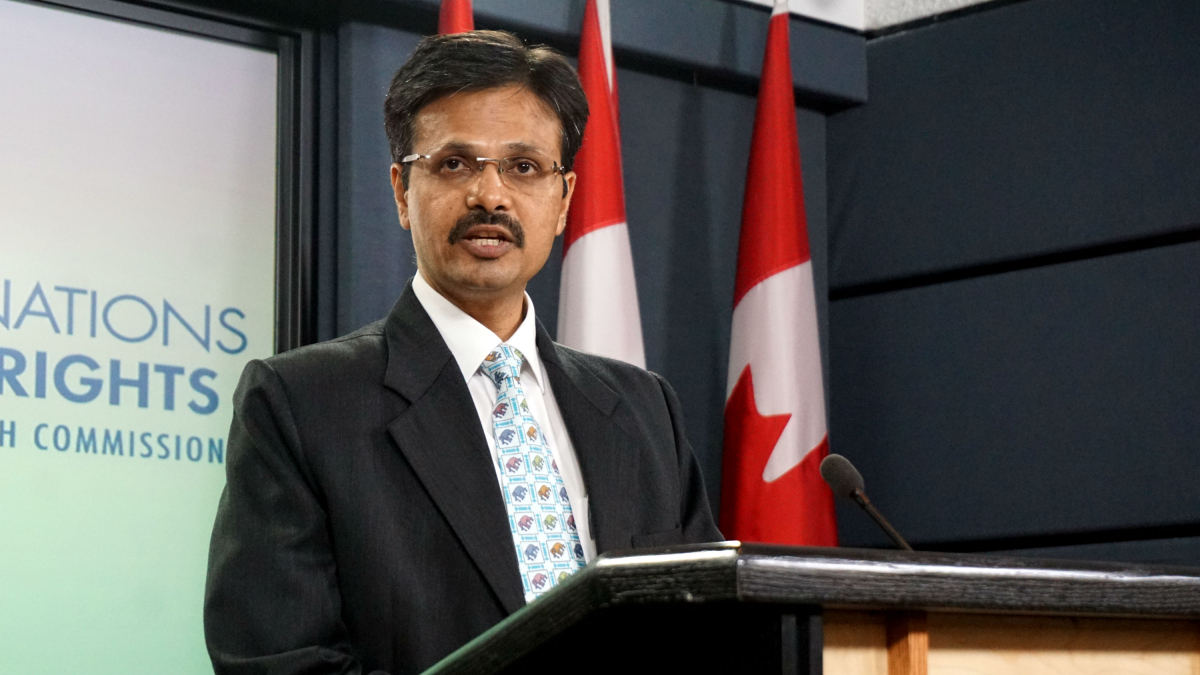
Industry touts top-notch practices
For every thousand mines abroad, McKay explained, Canadians probably only hear about two of them.
“(Canadian miners) have upped their game in terms of corporate social responsibility and environmental stewardship,” he told National Observer. “I think that maybe 10 years ago, Canadian mining companies were, shall we say, in the ‘bad actors’ category, and I think some of them are coming out of the bad actors category and being far more responsible about their stewardship.”
According to the Mining Association of Canada (MAC), which represents more than 40 of the country’s major industry players, Canada knows there is a “right way and a wrong way to operate.” On its website, the MAC says members voluntarily subscribe to as many as 17 different international standards dealing with human rights, environmental protection, anti-corruption and community development, including the OECD Guidelines for Multinational Enterprises and the UN Guiding Principles of Business and Human Rights.
In emailed comments, MAC president and CEO Pierre Gratton said the association and its members support “the existence of consequences” for companies that work in “bad faith or refuse to engage respectfully in resolving conflicts.” The organization used to oppose the creation of an ombudsperson, but Gratton said its position has changed.
The MAC now supports the installation of a human rights ombudsperson, provided the goal is conflict resolution, but rejects many of the powers and responsibilities sought after by civil society groups.
“We believe the ombudsperson should remain a non-judicial body, for practical as well as legal reasons,” said Gratton. “On this point, we do not share the views of some NGOs that want a mechanism that is quasi-judicial with far-reaching, unworkable investigatory powers.
“We also don’t believe such a design would lead to conflict resolution and is in fact more likely to exacerbate tensions to the detriment of all, including local communities.
Gratton added that if Canada is “serious” about becoming a world leader in business and human rights, the ombudsperson should be responsible for reviewing all sectors of the Canadian economy, rather than extraction alone.
Toronto-based Barrick Gold, a member of the MAC and the world’s largest gold producer, said it supports the creation of an ombudsperson, but for all Canadian business operating overseas. Barrick would need to see the final proposal before taking an official position, said spokesman Andy Lloyd.
Tahoe Resources, which owns one of the largest silver mines in the world located in Guatemala, said it has no official position on the creation of an ombudsperson, but is very supportive of remediation for those harmed, or perceived to have been harmed by mining projects. The Vancouver-based miner is not a member of the MAC, but said it is “very committed” to ethics and human rights in all of its operations.
“In fact, our sustainability director is in Geneva right now talking about that great instrument (the UN Guiding Principles on Business and Human Rights), which has been a great tool for us,” Tahoe’s vice-president of corporate affairs and general counsel, Edie Hofmeister, told National Observer in a Dec. 1 interview.
“We’ve also been following the Canadian corporate social responsibility guidelines and have worked closely with (Extractive Sector CSR Counsellor) Jeffrey Davidson. So we’ve been working on all those fronts in a very supportive way to really promote a human rights agenda in Guatemala, in Peru, in Canada where we operate.”
Tahoe is currently being sued for damages in Canadian court by the victims of a rubber bullet shooting that took place outside its silver mine during a peaceful protest in April 2013. The victims allege they were shot by the mine’s security personnel hired by Tahoe’s Guatemalan subsidiary, Minera San Rafael. Tahoe has settled out of court with three of the seven plaintiffs, and denied that it perpetrated the act in any way, shape or form. It has not yet filed a statement of defence.
In previous interviews, Natural Resources Minister Jim Carr — whose portfolio includes the extractive sector — has said he is “very proud” Canada’s mining industry.
"I think that the Mining Association of Canada and the mining industry itself has really led the world in many ways in sustainable mining,” he said in Ottawa in April. “We’re very proud of those accomplishments.”
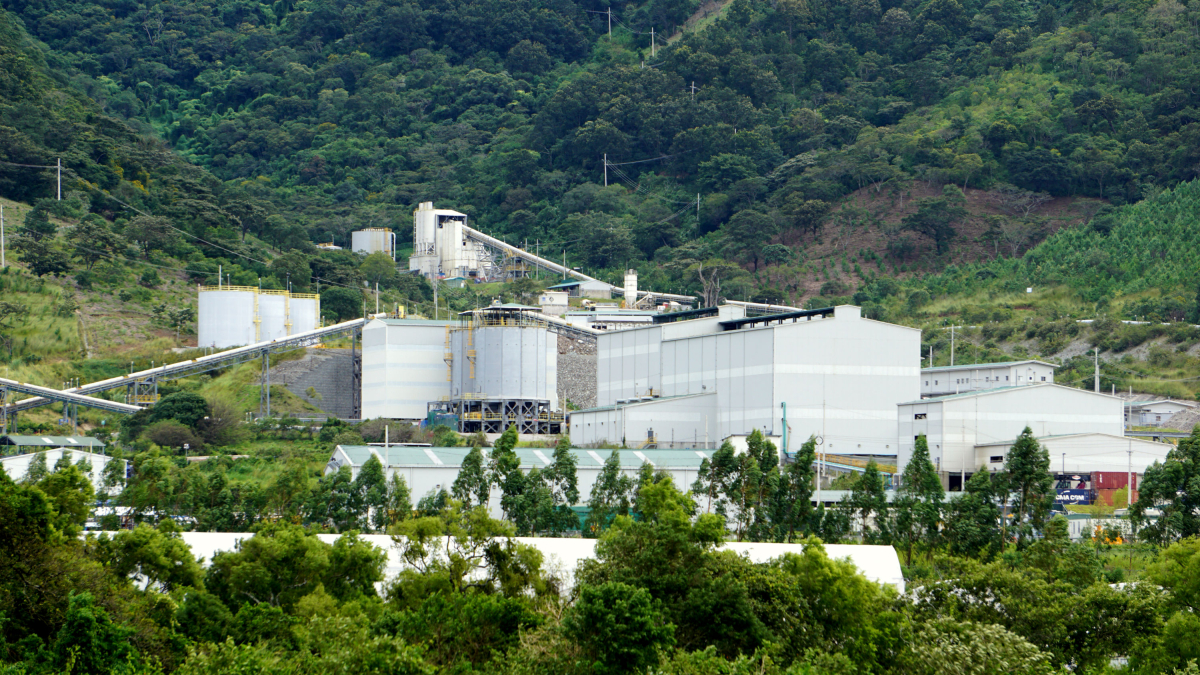
‘We can fully blame Canada’
For the women at the hotel in Guatemala, however, Canada’s human rights ombudsperson can’t come soon enough. Activists are being criminalized and prosecuted in “alarming figures,” said the country’s own human rights ombudsman, Augusto Jordán Rodas Andrade, during a meeting with international delegates in Guatemala City on Oct. 25.
He noted that the country’s president, Jimmy Morales — elected two years ago on a campaign of anti-corruption — is now under investigation for accepting allegedly illegal campaign funds. Earlier this year, Morales tried to expel the anti-corruption chief investigating him from the country, but was unsuccessful.
It’s a situation of corruption, said Andrade, that could lead Guatemala on a path that takes them “back to the time of the war.”
With little hope of obtaining justice at home, the country’s human rights defenders are calling on their allies abroad.
Lisa Rankin, a co-ordinator for the Maritimes Breaking the Silence Network, said Canadians must take the battle straight to Ottawa and into the boardrooms of problematic mining companies. Breaking the Silence is a voluntary network that engages in advocacy, lobbying, and human rights accompaniment in support of Guatemalans fighting for political, social and economic justice.
Rankin has lived in Guatemala for seven years, and said she’s seen many a friend and colleague beaten, arrested and incarcerated for their resistance to local extractive projects.
There is no public evidence linking such incidents to Canadian mining companies, but Rankin said resistance members are sure they are targeted for their activism.
“I think we’ve done our due diligence to share what’s actually happening on the ground," she told National Observer in Guatemala City. “We send out reports all the time, we attend shareholders meetings – at this point, there’s no way to say that these companies, their shareholders and the government don’t know.
“Really, it’s about doing the right thing, putting people’s lives over the profits of these companies and I think until that happens, we can fully blame Canada.
Editor's Note: Elizabeth McSheffrey travelled with the Nobel Women's Initiative and Just Associates. This article was updated on Thurs. Dec. 7, 2017 at 10:15 a.m. to correct a quote. The previous version said that union organizers were recently jailed in Mexico. In fact, they were killed. National Observer regrets the error.

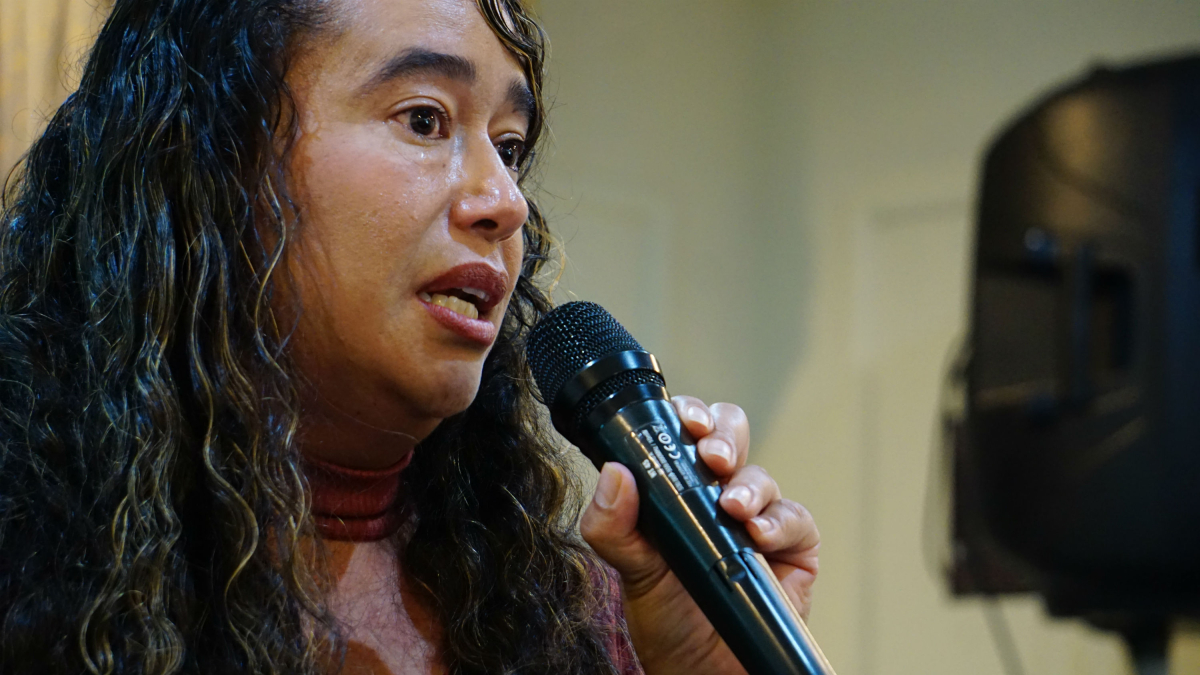

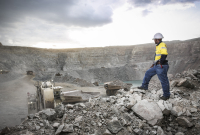
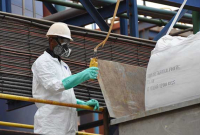
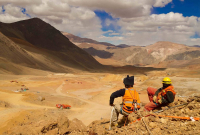
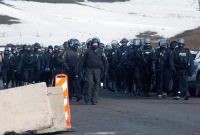
Comments
Words, words, words!! Absolutely the easiest thing in the world to just sit here in our comfortable country and spew out whatever makes us look good!!! Every CEO, elected official, appointee, etc. is equally guilty, as are Canadian citizens who ignore such issues in the rest of the world from within their own comfortable oblivion!
Get with the program, people, and hold all those politicians to account!!!
look up Barrick Gold they have a long bad History seventy five per cent of the mining
In the World is through the Tronto stock exchange .Fifty per cent of the Mines are on
Naitve Lands the Same is True in Canada The mining Companys have no respect for The
Enviroment or peoples in Western Canada.why would change thier ways in Guatemala.
But i am reading this Article and will send it widely do not Listen to jim Carr as he
speaks with a forked tounge like the rest of the Silver Spooners that try to look Good
In Front of a Camera with no substance
look up Barrick Gold they have a long bad History seventy five per cent of the mining
In the World is through the Tronto stock exchange .Fifty per cent of the Mines are on
Naitve Lands the Same is True in Canada The mining Companys have no respect for The
Enviroment or peoples in Western Canada.why would change thier ways in Guatemala.
But i am reading this Article and will send it widely do not Listen to jim Carr as he
speaks with a forked tounge like the rest of the Silver Spooners that try to look Good
In Front of a Camera with no substance